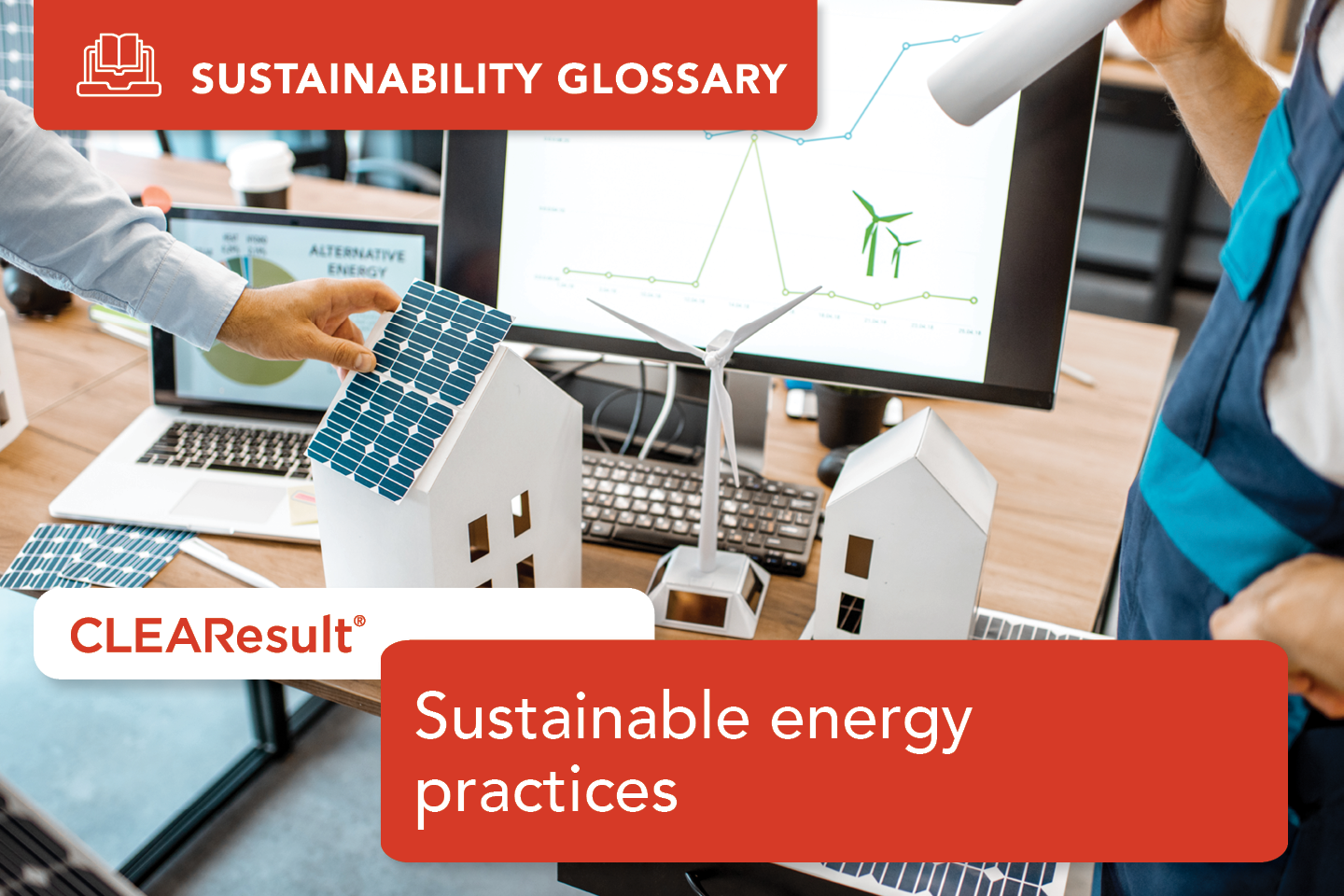Sustainable energy practices

What are sustainable energy practices?
Sustainable energy practices aim to reduce energy consumption, minimize energy waste and promote the use of clean and renewable energy sources.
The evolution of sustainable energy practices:
The concept of sustainability first emerged in the late 19th century, with a primary focus on environmental conservation (Source: The Sustainable Agency). Since then, the meaning of sustainable energy practices has broadened to include not only environmental efforts but also social and economic change. We know recognize that vulnerable communities often bear the brunt of climate change impacts, for instance, while lower income communities are less likely to have access to energy efficiency initiatives and measures. Today, sustainable energy practices are often developed with a focus on equity and environmental justice, making energy more accessible, affordable, clean and democratically managed for all. (Source: Office of Energy Efficiency & Renewable Energy.)
The development of sustainable energy practices:
- The late 19th and early 20th centuries saw the emergence of environmental conservation movements, with notable figures like John Muir and Theodore Roosevelt leading the way.
- The 1970s saw sustainability come to the foreground, as concerns about pollution, deforestation and resource depletion grew. The U.S. Environmental Protection Agency was established in 1970.
- In 1987, the United Nations Brundtland Commission defined sustainability as “meeting the needs of the present without compromising the ability of future generations to meet their own needs.” (Source: United Nations, Academic Impact.)
- International agreements, such as the Kyoto Protocol (1997) and the Paris Agreement (2015), emphasized the need for a global commitment to addressing climate change and adopting sustainable energy practices.
- The United Nations' Sustainable Development Goals, established in 2015, provide a comprehensive framework for addressing many global challenges, including poverty, inequality, climate change, environmental degradation, peace and justice.
Why are sustainable energy practices important?
Adopting sustainable energy practices is key to addressing climate change, protecting the environment and enhancing the well-being of current and future generations. Investing in and transitioning to renewable energy sources are fundamental aspects of building a sustainable future.
CLEAResult’s impact on sustainable energy practices:
We’re dedicated to improving and expanding sustainable energy practices across North America. The results of our latest Sustainability Report are a testament to our commitment to making a difference in the world. Since we founded in 2003, we’ve averted a total of 133 million metric tons of CO2 emissions. Our Energy Sustainability consultants offer a wide range of services to measure, build, manage, test, teach, certify and implement energy efficiency initiatives that help organizations meet their environmental and sustainability goals.
Since we founded in 2003, we’ve averted a total of 133 million metric tons of CO2 emissions.